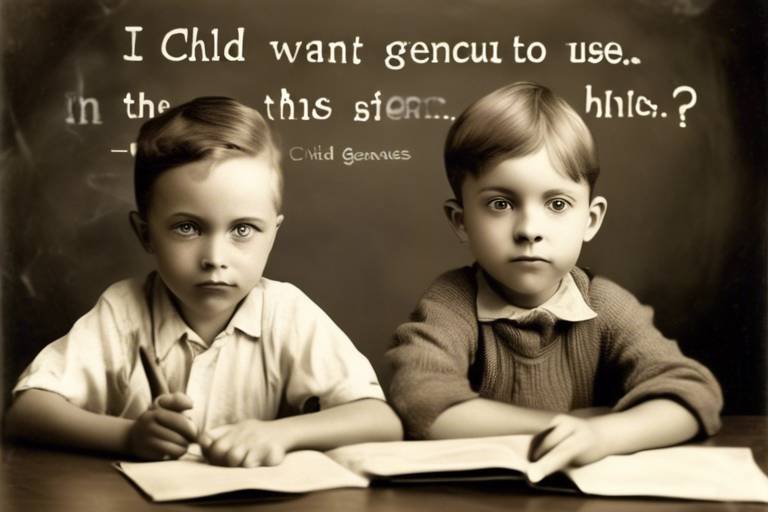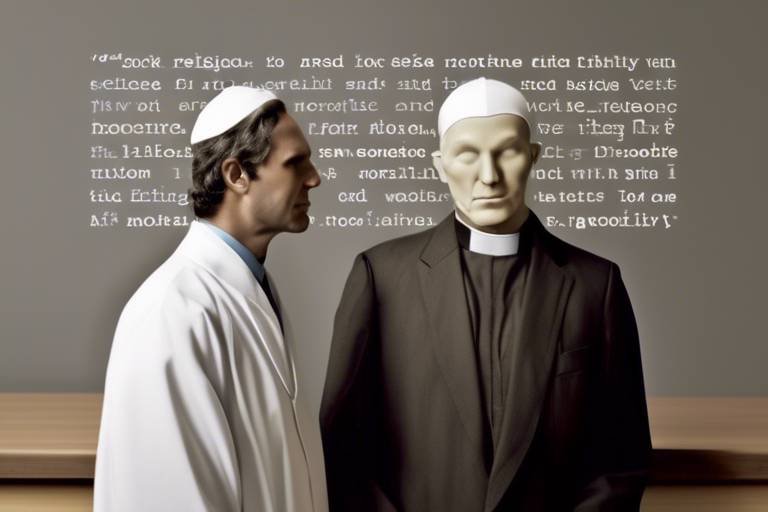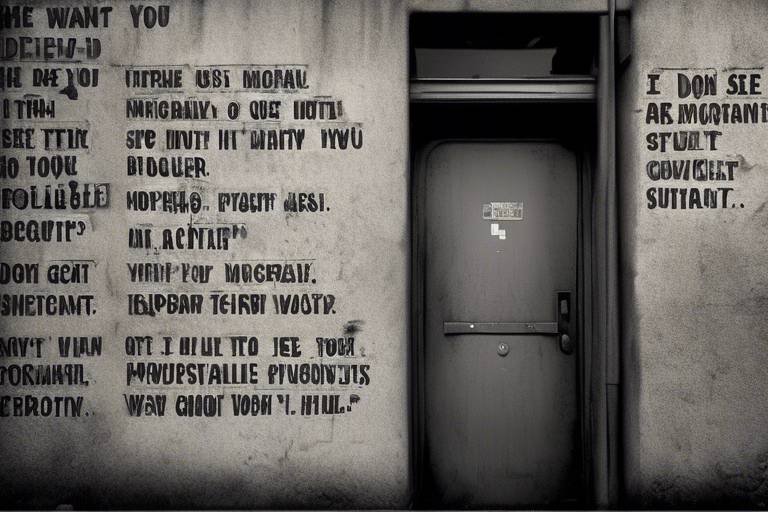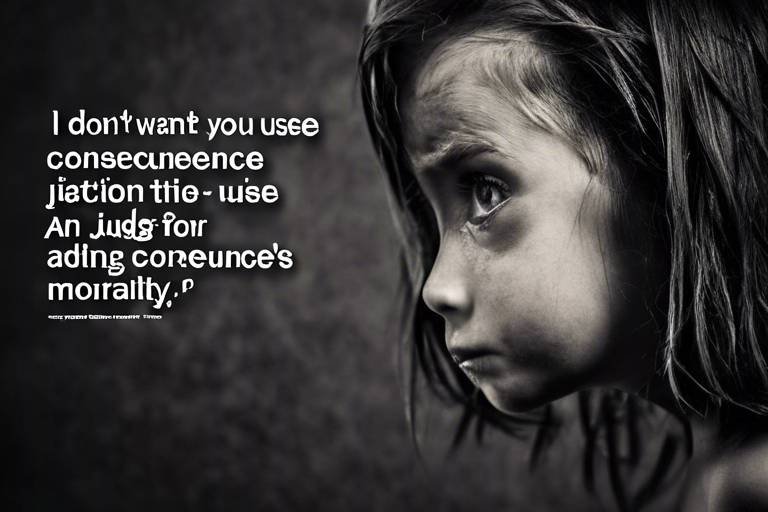Civil Disobedience – Break the Law for Higher Ethics?
Civil disobedience is a term that evokes strong emotions and deep ethical considerations. It raises questions about the very fabric of our society and the laws that govern it. Are all laws just? Should individuals comply with laws that contradict their moral compass? These questions are not merely academic; they resonate through the ages, challenging us to think critically about justice and our role in it. Throughout history, individuals have grappled with the dilemma of obeying unjust laws versus the moral imperative to resist them. Civil disobedience, as a form of nonviolent protest, serves as a powerful tool for individuals and groups to express dissent against societal norms and governmental policies that they perceive as unethical. This article delves into the rich tapestry of civil disobedience, exploring its historical significance, ethical implications, and the societal impact of nonviolent law-breaking in the pursuit of justice and moral principles.
Understanding the roots of civil disobedience reveals its evolution through history, showcasing key figures and movements that have employed this tactic to challenge unjust laws and societal norms. From ancient civilizations to modern democracies, acts of civil disobedience have sparked significant changes in legislation and societal attitudes. Notable examples include the Boston Tea Party, where American colonists protested British taxation, and the peaceful marches led by Martin Luther King Jr. during the Civil Rights Movement. These acts of defiance were not just mere law-breaking; they were deliberate and strategic moves aimed at highlighting injustice and pushing for social change. The historical context paints a vivid picture of how civil disobedience has been instrumental in shaping societies and promoting ethical governance.
The philosophical underpinnings of civil disobedience involve discussions of morality, justice, and individual conscience. Thinkers like Henry David Thoreau, Mahatma Gandhi, and Martin Luther King Jr. have argued for the ethical necessity of defying unjust laws. Their philosophies suggest that when laws are in direct conflict with moral principles, individuals have a duty to resist. For instance, Thoreau's essay "Civil Disobedience" advocates for prioritizing personal conscience over governmental mandates, emphasizing that it is not only a right but a responsibility to challenge injustice. This philosophical framework provides a compelling argument for why civil disobedience is not just an act of rebellion, but a profound expression of ethical integrity.
Thoreau's essay "Civil Disobedience" serves as a cornerstone for the movement, advocating for individual resistance to government policies that contradict personal morals and ethics. He famously stated, "That government is best which governs least," suggesting that excessive government control often leads to oppression. Thoreau's call to action encourages individuals to evaluate their complicity in injustice and to act accordingly. His thoughts resonate with many activists today, who find inspiration in his belief that moral action can lead to societal transformation.
Thoreau's message is clear: individuals should not passively accept laws that are unjust. He urges people to prioritize their conscience over compliance, advocating for a personal responsibility to resist complicity in wrongdoing. This philosophy has sparked movements across generations, inspiring countless activists to rise against oppressive systems. The essence of Thoreau's argument is that civil disobedience is not only justified but necessary in the pursuit of a more just society.
Thoreau’s ideas continue to resonate today, influencing contemporary social movements and activists who draw on his philosophy to justify their nonviolent resistance against oppressive systems. From the fight for climate justice to the Black Lives Matter movement, activists employ civil disobedience as a strategic method to highlight injustices and demand change. The legacy of Thoreau's thought underscores the ongoing relevance of civil disobedience in addressing modern societal issues.
Mahatma Gandhi’s approach to civil disobedience through nonviolence transformed political activism. He demonstrated how peaceful resistance could effectively challenge colonial rule and inspire global movements for civil rights and social justice. Gandhi's philosophy of "Satyagraha," or truth-force, emphasized the power of nonviolent action in confronting injustice. His methods not only led to India's independence but also influenced civil rights movements worldwide, showing that moral courage can lead to significant political change.
Exploring the legal ramifications of civil disobedience reveals the tension between upholding the law and advocating for moral change. Individuals who engage in civil disobedience often face legal consequences for their actions, raising critical questions about the balance between legal accountability and moral responsibility. The legal system typically views such acts as violations of the law; however, the underlying motivations often stem from a desire to challenge and reform unjust laws.
Analyzing specific instances of civil disobedience, such as the Civil Rights Movement and anti-war protests, provides insight into how these actions have shaped legal reforms and public opinion over time. For example, the sit-ins at segregated lunch counters in the 1960s were not only acts of defiance but also pivotal moments that spurred legislative changes in civil rights. These case studies illustrate the profound impact that civil disobedience can have on society and the law.
The consequences faced by individuals engaging in civil disobedience often include arrest and imprisonment, which raises questions about the balance between legal accountability and moral responsibility in the fight for justice. While some view these individuals as criminals, others see them as heroes standing up against an unjust system. This dichotomy reflects the complex nature of civil disobedience, where the line between legality and morality is often blurred.
Modern movements, from climate activism to social justice campaigns, utilize civil disobedience as a strategy, reflecting ongoing struggles against systemic injustice and the quest for ethical governance in today’s society. Activists today are not just echoing the voices of past leaders; they are innovating and adapting these philosophies to tackle contemporary issues. Whether it’s through organized protests, sit-ins, or digital activism, the spirit of civil disobedience remains a vital force for change.
- What is civil disobedience? Civil disobedience is the active, nonviolent refusal to comply with certain laws or demands of a government, typically as a means of protest against perceived injustice.
- Is civil disobedience legal? While civil disobedience often involves breaking the law, its legality varies depending on the context and the specific laws being challenged. Participants may face legal consequences for their actions.
- Can civil disobedience lead to social change? Yes, history shows that civil disobedience can effectively raise awareness, influence public opinion, and lead to significant legal and social reforms.
- Who are some notable figures associated with civil disobedience? Notable figures include Henry David Thoreau, Mahatma Gandhi, and Martin Luther King Jr., who all advocated for nonviolent resistance to injustice.

Historical Context of Civil Disobedience
The concept of civil disobedience is deeply rooted in history, tracing back to ancient civilizations where individuals challenged unjust laws and oppressive regimes. Over time, this form of protest has evolved, gaining traction during pivotal moments that shaped societal norms and governance. The **American Revolution**, for instance, was fueled by acts of civil disobedience against British rule, with colonists refusing to comply with taxes and mandates they deemed unjust. This early example set the stage for future movements where individuals would stand up against laws perceived as immoral or harmful.
Fast forward to the 19th century, where the writings of **Henry David Thoreau** became a beacon for those advocating for civil disobedience. Thoreau's essay, "Civil Disobedience," published in 1849, argued that individuals have a moral duty to resist government actions that contradict their personal ethics. His call to action inspired countless activists, laying the groundwork for future movements that would challenge the status quo. Thoreau's emphasis on individual conscience resonated during a time when slavery was rampant in the United States, and many began to question the morality of obeying laws that upheld such an institution.
In the early 20th century, **Mahatma Gandhi** took the principles of civil disobedience to another level, advocating for nonviolent resistance against British colonial rule in India. Gandhi's philosophy was rooted in the belief that **nonviolence** was the most powerful weapon for social change. His Salt March in 1930, a direct action against the British salt tax, showcased the effectiveness of peaceful civil disobedience and inspired global movements for civil rights and justice.
The **Civil Rights Movement** of the 1960s in the United States further exemplified the historical significance of civil disobedience. Figures like **Martin Luther King Jr.** drew heavily from Thoreau and Gandhi, employing nonviolent protests to challenge segregation and racial injustice. Sit-ins, marches, and boycotts became common tactics, illustrating how collective civil disobedience could effect change and push for legal reforms. The movement not only transformed American society but also highlighted the power of individuals uniting for a common cause.
Throughout history, civil disobedience has acted as a catalyst for change, challenging the legality of laws that perpetuate injustice. From early revolutions to modern-day protests, the act of breaking the law for higher ethical principles has become a powerful tool for social movements. As we examine the historical context of civil disobedience, it's clear that this practice is not merely about law-breaking; it's about standing up for what is right, even when it means facing the consequences.
In conclusion, the historical context of civil disobedience reveals a rich tapestry of individuals and movements that have shaped our understanding of justice and morality. As we continue to grapple with issues of inequality and oppression, the lessons learned from past civil disobedience movements remind us of the enduring power of standing up for one's beliefs.
- What is civil disobedience? Civil disobedience is the active, professed refusal to obey certain laws, demands, or commands of a government, typically as a peaceful form of protest.
- Who were the key figures in the history of civil disobedience? Key figures include Henry David Thoreau, Mahatma Gandhi, and Martin Luther King Jr., each of whom used civil disobedience to challenge unjust laws and promote social change.
- Is civil disobedience always nonviolent? While civil disobedience is often associated with nonviolent resistance, the methods and approaches can vary depending on the context and the goals of the movement.
- What are some modern examples of civil disobedience? Modern examples include climate activism protests, such as those organized by groups like Extinction Rebellion, and movements advocating for social justice and racial equality.
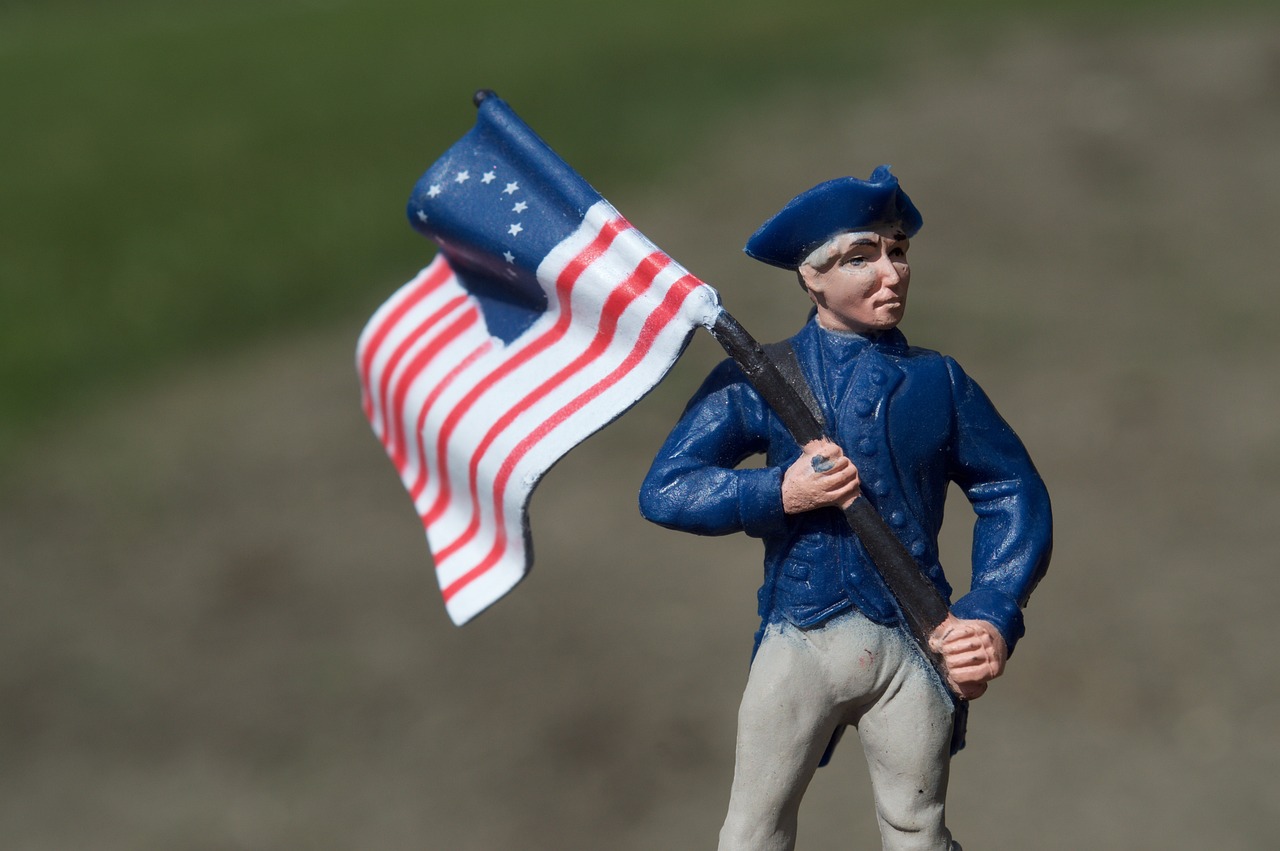
Philosophical Foundations
The concept of civil disobedience is deeply rooted in philosophical thought, where the interplay of morality, justice, and individual conscience creates a rich tapestry for understanding why individuals choose to defy the law. Thinkers like Henry David Thoreau, Mahatma Gandhi, and Martin Luther King Jr. have laid the groundwork for this discourse, each contributing unique perspectives on the ethical necessity of resisting unjust laws. At its core, civil disobedience challenges us to examine the very essence of what it means to be a just society. Are laws inherently just, or can they be instruments of oppression? This question is pivotal in the philosophical debate surrounding civil disobedience.
Thoreau, in his seminal essay Civil Disobedience, posits that individuals have a moral duty to act according to their conscience rather than blindly follow laws that conflict with their ethical beliefs. He famously stated, “That government is best which governs least,” suggesting that excessive governmental control can lead to tyranny. Thoreau's call to action emphasizes that when the law is at odds with personal morality, it is not only justified but also essential to resist. This notion has inspired countless activists to prioritize their ethical convictions over legal obligations.
Similarly, Gandhi’s philosophy of nonviolent resistance underscored the importance of ethical action in the face of tyranny. His approach was rooted in the belief that nonviolence is the most potent weapon in the struggle against oppression. Gandhi argued that true strength lies in the ability to endure suffering without retaliation, thus elevating the moral high ground in social and political conflicts. This perspective has shaped numerous movements worldwide, showing that ethical resistance can lead to profound societal change.
Martin Luther King Jr. took these ideas further, integrating them into the fabric of the American Civil Rights Movement. He articulated that “injustice anywhere is a threat to justice everywhere,” highlighting the interconnectedness of human rights. King believed that civil disobedience was not just a tactic but a profound moral obligation to combat systemic injustice. His famous letter from Birmingham Jail eloquently argued that individuals have a duty to disobey unjust laws, reinforcing the idea that civil disobedience is a vital component of a functioning democracy.
These philosophical foundations reveal a fundamental truth: civil disobedience is not merely an act of rebellion; it is a profound expression of ethical conviction. It serves as a reminder that laws are not infallible and that individuals must sometimes take a stand against injustice, even at great personal cost. The legacy of these thinkers continues to inspire modern activists, who draw upon their teachings to navigate the complexities of contemporary social issues.
As we delve deeper into the implications of civil disobedience, it becomes clear that the philosophical discourse surrounding it is not static. It evolves with each new generation, reflecting the changing dynamics of society and the ongoing struggle for justice. The questions posed by Thoreau, Gandhi, and King remain relevant today, urging us to consider our own moral responsibilities in the face of injustice.
- What is civil disobedience? Civil disobedience is the act of intentionally breaking laws or regulations to protest against perceived injustices, often in a nonviolent manner.
- Who are the main philosophers associated with civil disobedience? Key figures include Henry David Thoreau, Mahatma Gandhi, and Martin Luther King Jr., each contributing significantly to the philosophy and practice of civil disobedience.
- Is civil disobedience always nonviolent? While civil disobedience is typically characterized by nonviolent resistance, the motivations and methods can vary depending on the context and the individuals involved.
- What are the ethical implications of civil disobedience? Civil disobedience raises questions about the morality of laws, individual conscience, and the responsibility to act against injustice, challenging the notion of absolute legality.

Henry David Thoreau's Influence
Henry David Thoreau, a transcendentalist thinker and writer, profoundly shaped the concept of civil disobedience through his seminal essay, Civil Disobedience. Written in 1849, Thoreau's work emerged from his personal experiences, particularly his brief imprisonment for refusing to pay a poll tax that funded the Mexican-American War. This act of defiance was not merely a personal protest; it was a powerful statement against a government he viewed as unjust. Thoreau argued that individuals have a moral duty to resist laws that perpetuate injustice, a sentiment that resonates deeply with activists today.
Thoreau's philosophy is rooted in the belief that individual conscience must take precedence over societal laws. He famously stated, "That government is best which governs least," suggesting that overreaching government authority often leads to moral corruption. By prioritizing personal ethics, Thoreau encouraged people to examine their own beliefs and the laws they follow. His call to action was clear: when faced with an unjust law, one must act according to their conscience.
This idea of prioritizing conscience over compliance has inspired countless movements and individuals. For instance, during the Civil Rights Movement, leaders like Martin Luther King Jr. drew directly from Thoreau’s teachings. They emphasized nonviolent resistance as a means to challenge oppressive laws, echoing Thoreau's assertion that "it is not desirable to cultivate a respect for the law, so much as for the right." This approach has become a hallmark of civil disobedience, demonstrating the enduring relevance of Thoreau's ideas.
Moreover, Thoreau's influence can be seen in various modern movements where activists engage in nonviolent protest to advocate for change. From climate activism to social justice campaigns, the principles laid out by Thoreau continue to guide individuals in their quest for justice. The essence of his message is that true change often requires stepping outside the bounds of the law, a notion that remains both controversial and inspiring.
In summary, Thoreau's impact on civil disobedience is monumental. His insistence on the power of individual conscience, coupled with his advocacy for nonviolent resistance, has laid a foundational stone for activists across generations. His legacy is a reminder that while laws are meant to maintain order, they must also align with ethical principles. When they do not, it becomes the responsibility of individuals to challenge them, a call to action that continues to resonate in today’s societal struggles.

Civil Disobedience
This article explores the concept of civil disobedience, examining its historical significance, ethical implications, and the societal impact of nonviolent law-breaking in the pursuit of justice and moral principles.
Understanding the roots of civil disobedience reveals its evolution through history, showcasing key figures and movements that have employed this tactic to challenge unjust laws and societal norms.
The philosophical underpinnings of civil disobedience involve discussions of morality, justice, and individual conscience, highlighting the works of thinkers like Thoreau, Gandhi, and King, who argued for the ethical necessity of defying unjust laws.
Thoreau's essay serves as a cornerstone for the movement, advocating for individual resistance to government policies that contradict personal morals and ethics, emphasizing the duty to act against injustice.
Thoreau encourages individuals to prioritize their conscience over laws, urging them to resist complicity in injustice, which has inspired countless activists since its publication in 1849.
Thoreau’s ideas continue to resonate today, influencing contemporary social movements and activists who draw on his philosophy to justify their nonviolent resistance against oppressive systems.
Gandhi's approach to civil disobedience through nonviolence transformed political activism, demonstrating how peaceful resistance can effectively challenge colonial rule and inspire global movements for civil rights and social justice.
Exploring the legal ramifications of civil disobedience reveals the tension between upholding the law and advocating for moral change, highlighting cases where individuals faced legal consequences for their actions.
Analyzing specific instances of civil disobedience, such as the Civil Rights Movement and anti-war protests, provides insight into how these actions have shaped legal reforms and public opinion over time.
The consequences faced by individuals engaging in civil disobedience often include arrest and imprisonment, raising questions about the balance between legal accountability and moral responsibility in the fight for justice.
Modern movements, from climate activism to social justice campaigns, utilize civil disobedience as a strategy, reflecting ongoing struggles against systemic injustice and the quest for ethical governance in today’s society.
- What is civil disobedience? Civil disobedience is the act of intentionally breaking the law to protest against policies or laws that are considered unjust.
- Is civil disobedience effective? Yes, history shows that civil disobedience can lead to significant social and political change, as it raises awareness and prompts dialogue about important issues.
- Can civil disobedience be justified? Many philosophers and activists argue that civil disobedience is justified when laws are immoral or violate human rights.
- What are some famous examples of civil disobedience? Notable examples include the actions of Martin Luther King Jr. during the Civil Rights Movement and Gandhi's nonviolent protests against British colonial rule.
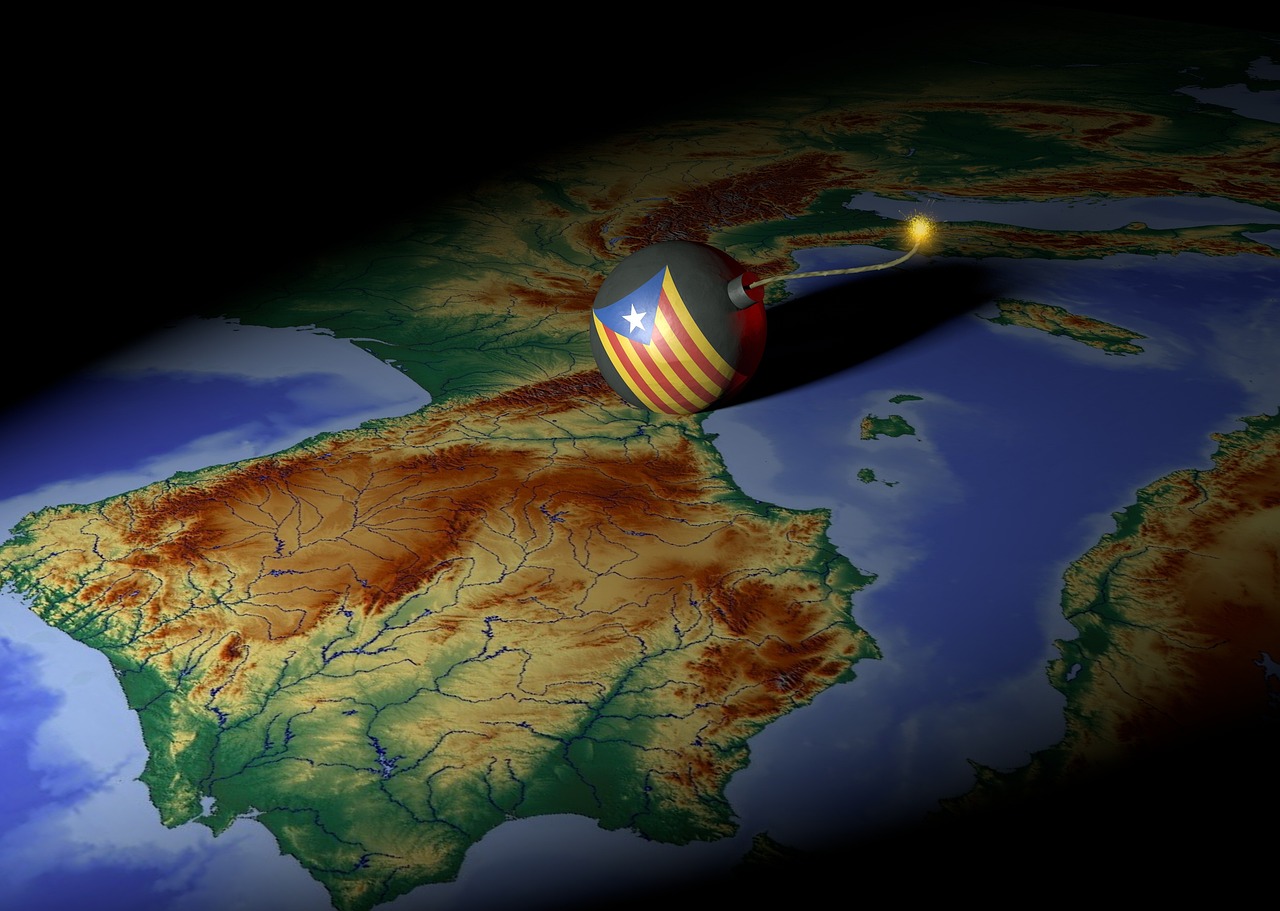
serves as a cornerstone for the movement, advocating for individual resistance to government policies that contradict personal morals and ethics, emphasizing the duty to act against injustice.
This article explores the concept of civil disobedience, examining its historical significance, ethical implications, and the societal impact of nonviolent law-breaking in the pursuit of justice and moral principles.
Understanding the roots of civil disobedience reveals its evolution through history, showcasing key figures and movements that have employed this tactic to challenge unjust laws and societal norms.
The philosophical underpinnings of civil disobedience involve discussions of morality, justice, and individual conscience, highlighting the works of thinkers like Thoreau, Gandhi, and King, who argued for the ethical necessity of defying unjust laws.
Thoreau's essay Civil Disobedience serves as a cornerstone for the movement, advocating for individual resistance to government policies that contradict personal morals and ethics, emphasizing the duty to act against injustice. In this influential piece, Thoreau argues that it is not only the right but also the obligation of individuals to resist laws that are fundamentally unjust. He believes that when a government enacts policies that violate ethical standards, citizens must stand up and voice their dissent through nonviolent resistance. This idea resonates deeply, suggesting that morality should take precedence over blind obedience to the law.
Thoreau encourages individuals to prioritize their conscience over laws, urging them to resist complicity in injustice, which has inspired countless activists since its publication in 1849. He posits that true justice cannot be achieved if individuals remain passive in the face of wrongdoing. His call to action is not just a theoretical stance; it is a practical guide for anyone who finds themselves at odds with the laws of their land. By emphasizing personal responsibility, Thoreau lays the groundwork for future movements, urging people to act in accordance with their moral compass.
Thoreau’s ideas continue to resonate today, influencing contemporary social movements and activists who draw on his philosophy to justify their nonviolent resistance against oppressive systems. The echoes of his thoughts can be found in various modern contexts, from environmental activism to civil rights campaigns. Activists often reference Thoreau to articulate their struggles against laws that they perceive as unjust, showcasing the enduring legacy of his work in shaping ethical activism.
Gandhi's approach to civil disobedience through nonviolence transformed political activism, demonstrating how peaceful resistance can effectively challenge colonial rule and inspire global movements for civil rights and social justice.
Exploring the legal ramifications of civil disobedience reveals the tension between upholding the law and advocating for moral change, highlighting cases where individuals faced legal consequences for their actions.
Analyzing specific instances of civil disobedience, such as the Civil Rights Movement and anti-war protests, provides insight into how these actions have shaped legal reforms and public opinion over time.
The consequences faced by individuals engaging in civil disobedience often include arrest and imprisonment, raising questions about the balance between legal accountability and moral responsibility in the fight for justice.
Modern movements, from climate activism to social justice campaigns, utilize civil disobedience as a strategy, reflecting ongoing struggles against systemic injustice and the quest for ethical governance in today’s society.
- What is civil disobedience? Civil disobedience is the active, professed refusal to obey certain laws, demands, or commands of a government or occupying power, typically as a form of peaceful protest.
- Who are some key figures associated with civil disobedience? Key figures include Henry David Thoreau, Mahatma Gandhi, and Martin Luther King Jr., who all advocated for nonviolent resistance against unjust laws.
- Is civil disobedience legal? While civil disobedience often involves breaking the law, its legality can vary depending on the context and the specific laws being challenged.
- What are the consequences of civil disobedience? Individuals engaging in civil disobedience may face arrest, fines, or imprisonment, but these consequences are often viewed as a necessary sacrifice for a greater moral cause.

Thoreau's Call to Action
In his seminal essay Civil Disobedience, Henry David Thoreau passionately advocates for the individual's moral obligation to resist unjust laws. Thoreau's argument is simple yet profound: when a law is unjust, it is not only the right but the duty of the individual to act against it. This call to action is not just a philosophical stance; it is a rallying cry for anyone who believes in justice and morality over blind obedience to the law. Thoreau emphasizes that the government is often a mere reflection of the collective conscience of its people, and when that conscience is corrupted, the laws that emerge can be equally flawed.
Thoreau's insistence on prioritizing personal conscience over societal norms resonates deeply in today's world. He urges individuals to evaluate their actions critically and to question the legitimacy of laws that perpetuate injustice. This idea can be likened to the act of peeling an onion; as you remove each layer, you uncover deeper truths that challenge the status quo. He argues that complicity in injustice is a far greater crime than breaking an unjust law. This perspective challenges us to consider: what are we willing to sacrifice for our principles?
His call to action is not merely theoretical; it is a practical guide for activism. Thoreau suggests that individuals should take a stand, even if it means facing legal repercussions. He famously states, “Under a government which imprisons any unjustly, the true place for a just man is also a prison.” This notion of willingly accepting the consequences of one's actions in the name of justice has inspired countless movements throughout history. Thoreau's words serve as a beacon for those who feel powerless against oppressive systems, encouraging them to rise and challenge the status quo.
Furthermore, Thoreau's philosophy has laid the groundwork for various forms of peaceful protest. His belief in nonviolent resistance has influenced many prominent figures, including Martin Luther King Jr. and Mahatma Gandhi. By advocating for action rooted in ethics rather than fear, Thoreau empowers individuals to be the change they wish to see in the world. This ethos is especially relevant today, as we witness modern movements that echo Thoreau's sentiments, from climate activists blocking roads to social justice campaigns demanding systemic reform.
In essence, Thoreau's call to action is an invitation to engage in a deeper conversation about ethics, justice, and the role of the individual in society. It challenges us to reflect on our own lives and consider how we can contribute to a more just world. Are we prepared to stand up for what is right, even when it is unpopular? Are we willing to face the consequences of our convictions? Thoreau's message remains as powerful today as it was in the 19th century, urging us to act with integrity and courage in the face of injustice.
- What is civil disobedience? Civil disobedience is the act of intentionally breaking a law to protest against policies or actions deemed unjust or immoral.
- Who was Henry David Thoreau? Thoreau was an American transcendentalist writer and philosopher known for his essay "Civil Disobedience," which argues for individual resistance to unjust laws.
- How has Thoreau influenced modern activism? Thoreau's principles of nonviolent resistance have inspired numerous social movements, encouraging activists to challenge injustice peacefully.
- What are some examples of civil disobedience? Notable examples include the Civil Rights Movement, anti-war protests, and contemporary climate activism.
- What are the consequences of civil disobedience? Individuals engaging in civil disobedience may face legal penalties, including arrest and imprisonment, but often view these consequences as necessary for the greater good.
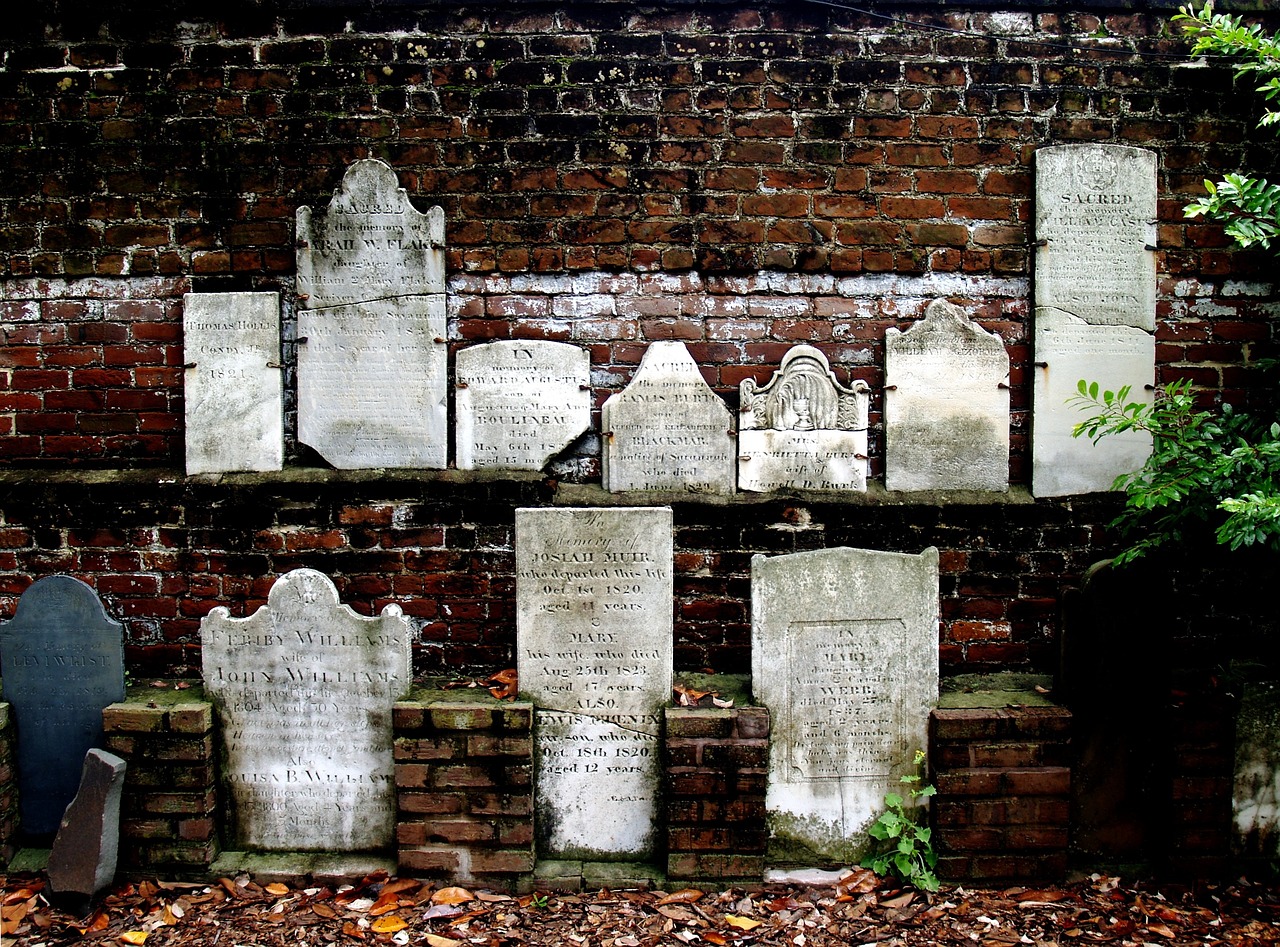
Impact on Modern Activism
The ripple effects of Henry David Thoreau's philosophy on civil disobedience are profoundly evident in modern activism. His call for individuals to act according to their conscience rather than blindly follow laws resonates deeply with contemporary movements. In a world where social justice issues are at the forefront of public discourse, Thoreau's ideas serve as a guiding light for many activists who find themselves grappling with the moral implications of unjust laws.
For instance, contemporary movements such as Black Lives Matter and various climate action groups have adopted nonviolent resistance strategies that echo Thoreau's principles. These activists recognize that sometimes, breaking the law is necessary to highlight the urgent need for change. Just like Thoreau, they believe that the moral imperative to act against injustice outweighs the consequences of law-breaking. This mindset has led to a resurgence of civil disobedience as a tactic for social change, demonstrating its relevance even in today’s complex societal landscape.
Moreover, the rise of social media has transformed how modern activists mobilize and spread their messages. Platforms like Twitter, Instagram, and Facebook enable rapid dissemination of information, allowing movements to gain traction quickly. Activists can share their stories, organize protests, and call for action with unprecedented speed and reach. This digital age has made it easier for individuals to unite under a common cause, amplifying their voices and actions in ways that Thoreau could only have dreamed of.
To illustrate the impact of Thoreau's ideas on modern activism, consider the following table that highlights key movements and their alignment with civil disobedience principles:
| Movement | Key Actions | Alignment with Thoreau's Philosophy |
|---|---|---|
| Black Lives Matter | Protests, sit-ins, and marches | Prioritizing justice over compliance with unjust laws |
| Fridays for Future | School strikes, climate marches | Challenging governmental inaction on climate change |
| Women’s March | Mass demonstrations, advocacy for policy changes | Resisting laws that undermine women's rights |
In conclusion, the impact of Thoreau's advocacy for civil disobedience is not just a historical footnote; it is a living, breathing force that continues to inspire and guide modern activists. As they navigate the complexities of today’s social issues, the ethical framework laid out by Thoreau empowers them to stand up against oppression, challenge the status quo, and fight for a more just society. The essence of his message—that individuals must act according to their conscience—is more relevant than ever, as people around the world strive for justice in the face of systemic inequities.
- What is civil disobedience? Civil disobedience is the act of intentionally breaking the law to challenge and change unjust laws or policies.
- Who are some key figures in the history of civil disobedience? Key figures include Henry David Thoreau, Mahatma Gandhi, and Martin Luther King Jr.
- How does civil disobedience differ from other forms of protest? Civil disobedience specifically involves nonviolent law-breaking to highlight moral or ethical grievances.
- Is civil disobedience effective? Yes, many historical movements have successfully used civil disobedience to enact social and legal change.

Gandhi and Nonviolent Resistance
When we think of civil disobedience, one name that often springs to mind is Mahatma Gandhi. His philosophy of nonviolent resistance, or satyagraha, was revolutionary, not just for India but for the entire world. Gandhi believed that the power of love and truth could overcome the might of oppression. He famously stated, “You must be the change you wish to see in the world,” encapsulating the essence of his approach. But what does this really mean in the context of civil disobedience?
Gandhi's method was rooted in the idea that individuals have a moral responsibility to resist unjust laws without resorting to violence. This approach was not just about passive resistance; it was an active form of protest that required immense courage and discipline. For Gandhi, nonviolence was a weapon of the strong, a way to confront injustice while maintaining one’s integrity and humanity. His campaigns against British colonial rule in India showcased how nonviolent disobedience could mobilize the masses and challenge the status quo.
Let’s take a closer look at some of the key principles of Gandhi’s nonviolent resistance:
- Truth: Gandhi believed that truth was the ultimate goal of all actions. He argued that one must adhere to truth in both thought and action.
- Nonviolence: For Gandhi, nonviolence was not just a strategy but a way of life. He maintained that violence only begets more violence, whereas love and compassion can foster understanding and change.
- Self-Suffering: Gandhi promoted the idea of willingly accepting suffering as a means to highlight injustice. This self-sacrifice would awaken the conscience of the oppressor and the oppressed alike.
Gandhi’s principles were put to the test during several pivotal moments in Indian history. One notable instance was the Salt March in 1930, where he led thousands of Indians on a 240-mile march to the Arabian Sea to produce salt, defying British laws that imposed a salt tax. This act of civil disobedience was not just about salt; it was a powerful statement against colonial oppression. The Salt March galvanized the Indian population, drawing international attention to the struggle for independence. It demonstrated how a simple act of defiance could challenge an empire and inspire a nation.
Moreover, Gandhi's influence extended far beyond India. His teachings inspired civil rights movements across the globe. Leaders like Martin Luther King Jr. in the United States adopted Gandhi's principles of nonviolent resistance to combat racial injustice. King famously stated, “Nonviolence is a powerful and just weapon,” echoing Gandhi’s belief that love and truth could ultimately triumph over hate and oppression.
As we reflect on Gandhi’s legacy, it’s evident that his approach to civil disobedience remains relevant today. In a world still riddled with inequality and injustice, his message encourages individuals to stand up against oppressive systems without resorting to violence. The challenge lies in finding ways to effectively communicate dissent while fostering understanding and compassion. Gandhi’s life reminds us that true change often requires not just action, but a profound commitment to nonviolence and ethical integrity.
In conclusion, Gandhi's nonviolent resistance is a testament to the power of peaceful protest. It teaches us that breaking the law for a higher ethical purpose can lead to significant social change, provided it is done with love and respect for all. As we navigate our own struggles for justice, let us draw inspiration from Gandhi's unwavering commitment to truth and nonviolence.
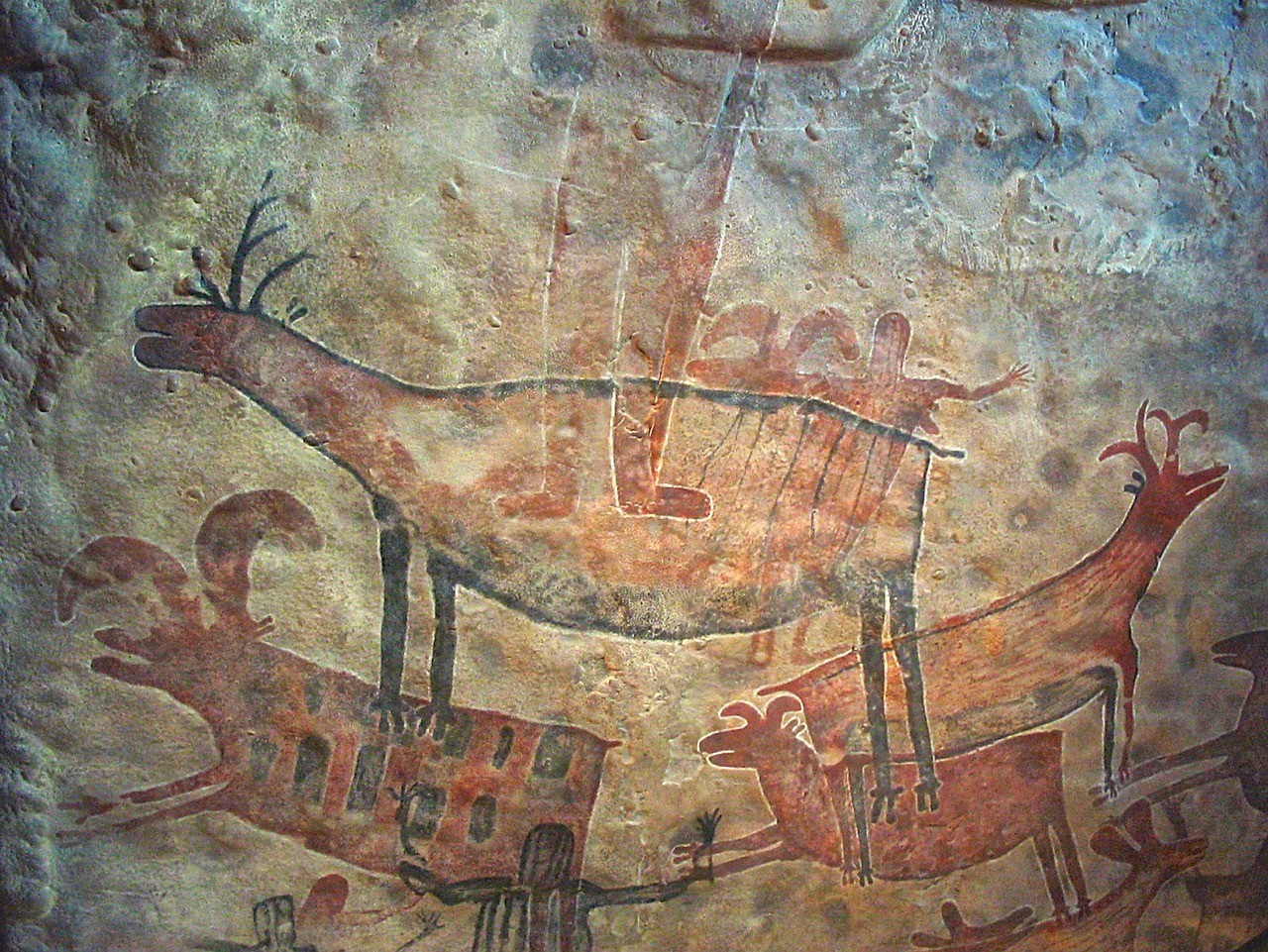
Legal Perspectives on Civil Disobedience
The concept of civil disobedience often brings about a complex interplay between legal frameworks and moral imperatives. At its core, civil disobedience challenges the notion of law as an absolute authority, suggesting that when laws are unjust, individuals have a moral obligation to resist. This raises significant questions about the relationship between legality and morality, particularly in democratic societies where laws are meant to reflect the will of the people.
Historically, civil disobedience has been met with both support and condemnation from legal scholars and practitioners. Some argue that breaking the law for ethical reasons can lead to positive social change, while others contend that it undermines the rule of law, which is essential for maintaining order in society. This dichotomy is particularly evident in landmark cases where civil disobedience has played a pivotal role in shaping legal precedents.
For instance, during the Civil Rights Movement in the United States, activists engaged in nonviolent protests and sit-ins, deliberately breaking segregation laws to highlight their injustice. These actions not only drew public attention to civil rights violations but also led to significant legal reforms, including the Civil Rights Act of 1964 and the Voting Rights Act of 1965. The legal repercussions faced by these activists, often including arrest and imprisonment, sparked national debates about the legitimacy of civil disobedience as a form of protest.
To better understand the legal perspectives on civil disobedience, we can look at a few key concepts:
| Concept | Description |
|---|---|
| Rule of Law | The principle that all individuals and institutions are accountable to the law, which must be fairly applied and enforced. |
| Just vs. Unjust Laws | The differentiation between laws that uphold justice and those that perpetuate injustice, often cited by civil disobedience advocates. |
| Legal Consequences | The potential penalties, such as fines or imprisonment, faced by individuals who engage in civil disobedience. |
Moreover, the legal consequences of civil disobedience can vary significantly based on the political and social context of the time. In some cases, individuals who engage in these acts are celebrated as heroes, while in others, they are vilified and face harsh penalties. This inconsistency underscores the ongoing debate about the role of civil disobedience in a functioning democracy.
In contemporary society, the legal ramifications of civil disobedience continue to spark discussions. For example, modern movements addressing climate change often involve acts of civil disobedience, such as blocking roads or occupying government buildings. While these actions aim to draw attention to urgent issues, they also raise questions about the legality of such protests and the potential consequences for those involved.
Ultimately, the legal perspectives on civil disobedience illustrate a fundamental tension: the struggle between upholding laws and advocating for necessary moral change. As society evolves, so too does the understanding of what constitutes justifiable civil disobedience. This ongoing dialogue is crucial in shaping the future of activism and the legal system.
- What is civil disobedience? Civil disobedience is the act of intentionally breaking the law to challenge its morality or justice, often through nonviolent means.
- Is civil disobedience legal? While civil disobedience involves breaking the law, it can be seen as a form of protest that raises important ethical questions; however, participants may face legal consequences.
- What are some historical examples of civil disobedience? Key examples include the Civil Rights Movement, Gandhi's Salt March, and anti-war protests during the Vietnam War.
- How does civil disobedience impact society? Civil disobedience can lead to significant social and legal changes by raising awareness of injustices and prompting public discourse.

Case Studies of Civil Disobedience
Civil disobedience has played a pivotal role in shaping societal norms and legal frameworks throughout history. By examining specific case studies, we can better understand how acts of nonviolent law-breaking have not only challenged unjust laws but also sparked significant social change. One of the most notable instances of civil disobedience occurred during the Civil Rights Movement in the United States. Activists, inspired by the teachings of leaders like Martin Luther King Jr., engaged in peaceful protests to dismantle systemic racism and segregation. For example, the Montgomery Bus Boycott in 1955 was a powerful act of civil disobedience where African Americans refused to ride city buses to protest segregated seating. This boycott lasted over a year and ultimately led to a Supreme Court ruling that declared segregation on public buses unconstitutional.
Another significant case study is the Stonewall Riots of 1969, which marked a turning point in the fight for LGBTQ+ rights. Patrons of the Stonewall Inn in New York City resisted police harassment, leading to several days of protests. This act of civil disobedience not only galvanized the LGBTQ+ community but also ignited a broader movement for equality and acceptance. The riots are now commemorated annually during Pride Month, symbolizing the ongoing struggle for human rights.
In more recent times, the Occupy Wall Street movement in 2011 exemplified civil disobedience in the context of economic inequality. Protesters occupied Zuccotti Park in New York City, voicing their frustrations against corporate greed and the influence of money in politics. While the movement faced criticism and legal challenges, it succeeded in bringing attention to issues of wealth disparity and sparked conversations about economic reform across the globe.
These case studies illustrate the profound impact that civil disobedience can have on society. They not only challenge the status quo but also inspire individuals to stand up for their beliefs. The legacy of these movements continues to influence contemporary activists who seek to address various forms of injustice today.
| Case Study | Year | Key Focus | Outcome |
|---|---|---|---|
| Montgomery Bus Boycott | 1955 | Segregation in public transportation | Supreme Court ruling against bus segregation |
| Stonewall Riots | 1969 | LGBTQ+ rights | Increased visibility and activism for LGBTQ+ rights |
| Occupy Wall Street | 2011 | Economic inequality | Heightened awareness of wealth disparity issues |
As we reflect on these powerful examples of civil disobedience, it becomes clear that the act of breaking the law for a greater ethical cause is not just a historical phenomenon; it is an ongoing strategy employed by those who believe in justice and equality. The courage displayed by these individuals and movements serves as a reminder that sometimes, to effect real change, one must be willing to step outside the boundaries of the law.
- What is civil disobedience? Civil disobedience is the active, professed refusal to obey certain laws, demands, or commands of a government or occupying power, often characterized by nonviolent resistance.
- Is civil disobedience always nonviolent? While civil disobedience is typically associated with nonviolent actions, there are instances where individuals may resort to more aggressive forms of protest. However, the philosophy behind civil disobedience often emphasizes peaceful methods.
- Can civil disobedience lead to legal consequences? Yes, individuals engaging in civil disobedience often face legal repercussions, including arrest and fines, as they intentionally break laws they deem unjust.
- How has civil disobedience influenced modern movements? Civil disobedience continues to inspire modern movements, such as climate activism and social justice campaigns, by providing a framework for peaceful protest against systemic injustices.
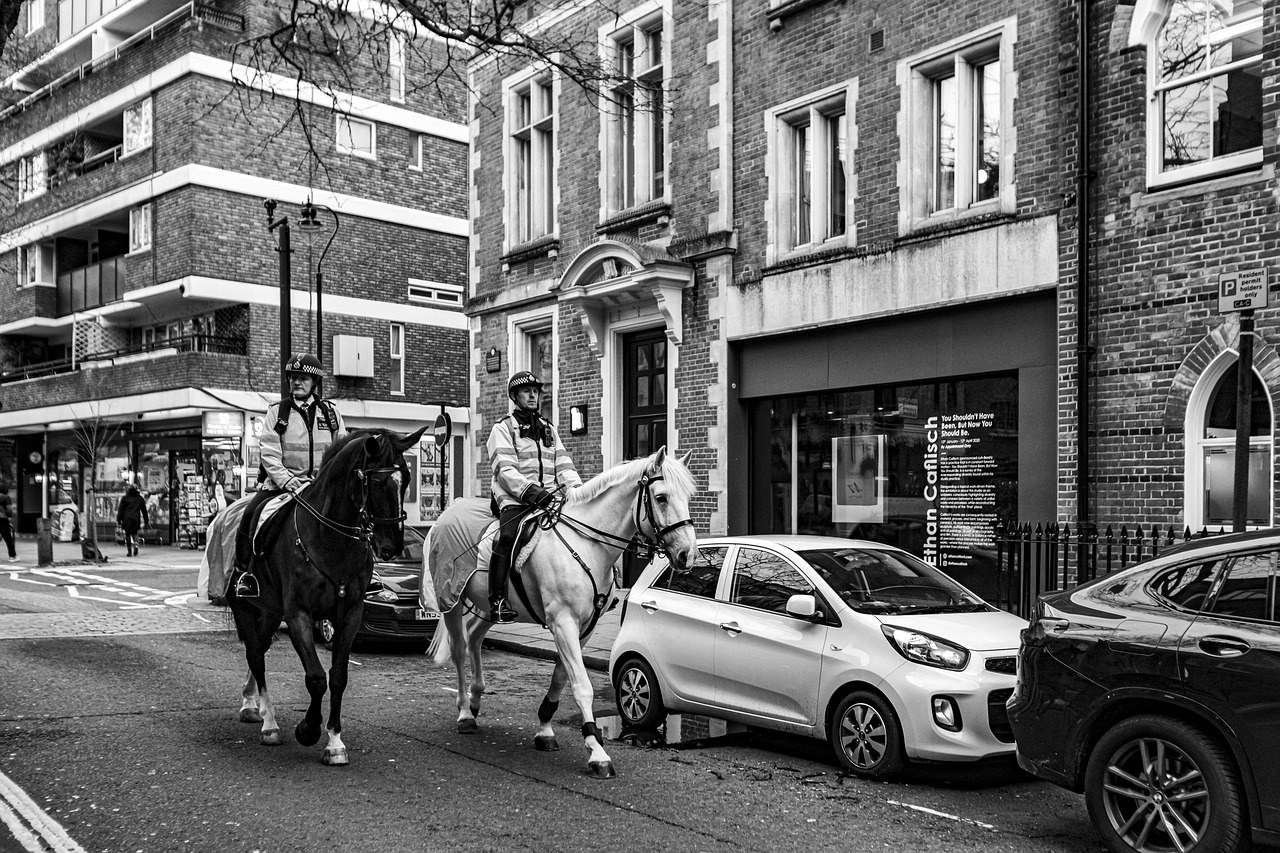
Consequences and Repercussions
Engaging in civil disobedience is not without its consequences. Individuals who choose to break the law in the name of higher ethics often face a myriad of repercussions that can range from legal penalties to personal sacrifices. This raises a fundamental question: is the risk worth the potential gain? For many activists, the answer is a resounding yes, as they believe that the pursuit of justice and moral integrity far outweighs the threats of arrest or societal backlash.
When individuals participate in acts of civil disobedience, they often do so with the understanding that they may be arrested or face legal action. This is part of the strategy; by willingly accepting these consequences, they aim to draw attention to their cause and highlight the injustices they are fighting against. For instance, during the Civil Rights Movement, activists faced brutal police responses, imprisonment, and even violence, yet their sacrifices played a crucial role in dismantling systemic racism in the United States.
Here’s a brief overview of some common consequences faced by those who engage in civil disobedience:
- Legal Consequences: Arrests and charges can lead to criminal records, fines, or even imprisonment.
- Social Backlash: Participants may face criticism from their communities or backlash from those who oppose their views.
- Personal Sacrifices: Activists may risk their jobs, relationships, and personal safety in the pursuit of their goals.
- Psychological Impact: The stress of facing legal repercussions and societal rejection can lead to mental health challenges.
Despite these potential repercussions, many activists find that the moral imperative to act against injustice provides them with a sense of purpose and fulfillment. The emotional toll of inaction can often feel heavier than the burden of facing consequences. This sentiment is echoed in the words of Martin Luther King Jr., who famously stated, “Injustice anywhere is a threat to justice everywhere.” This perspective underscores the belief that the fight for justice is a collective responsibility that transcends individual fears.
Moreover, the repercussions of civil disobedience can extend beyond the individual. They can lead to significant societal shifts and legal reforms. For example, the protests against the Vietnam War, which often involved acts of civil disobedience, played a pivotal role in changing public opinion and influencing government policy. The ripple effects of these actions can inspire future generations to continue the fight for justice, creating a legacy of activism that challenges oppressive systems.
In conclusion, while the consequences of civil disobedience can be severe, they are often viewed as a necessary sacrifice in the pursuit of ethical governance and justice. The courageous individuals who choose to stand against unjust laws not only advocate for their own rights but also pave the way for future societal change.
- What is civil disobedience? Civil disobedience is the act of intentionally breaking the law to protest against perceived injustices or immoral policies.
- Is civil disobedience effective? Yes, history has shown that civil disobedience can lead to significant social and legal changes, as it raises awareness and pressures governments to address injustices.
- What are the risks involved? Risks include arrest, legal consequences, social backlash, and personal sacrifices, but many activists believe these risks are worth taking for a greater cause.
- How can one engage in civil disobedience safely? It’s important to be informed about your rights, have a clear understanding of your goals, and connect with organized groups that can provide support and resources.
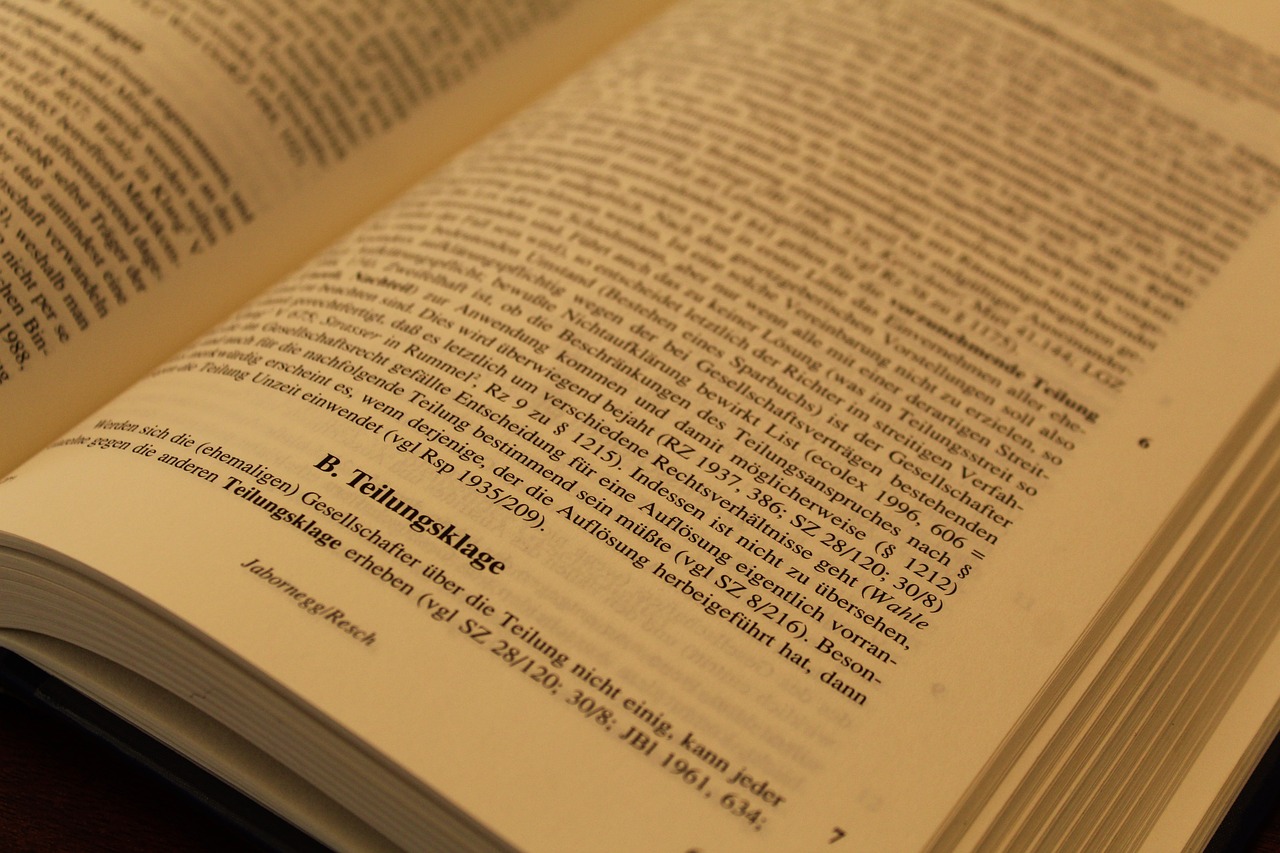
Contemporary Examples of Civil Disobedience
In today's world, the spirit of civil disobedience is more alive than ever, echoing through various movements that challenge systemic injustices. From climate activists chaining themselves to trees to protest deforestation, to peaceful protests against police brutality, individuals and groups are employing nonviolent law-breaking as a means to demand change. One of the most striking examples is the Fridays for Future movement, initiated by young activist Greta Thunberg. This global campaign has seen students skipping school to demand government action on climate change, effectively using civil disobedience to draw attention to an urgent issue that affects everyone.
Another poignant example is the Black Lives Matter movement, which gained significant traction following the tragic death of George Floyd in 2020. Activists organized protests across the globe, many of which involved civil disobedience tactics such as sit-ins and marches that disrupted daily life to highlight the pressing need for racial justice and police reform. These protests often faced legal repercussions, yet the moral imperative behind them resonated with millions, showcasing how civil disobedience can galvanize public sentiment and lead to meaningful dialogue about race and justice.
Moreover, the Extinction Rebellion has emerged as a powerful force in the climate movement, employing tactics like road blockades and occupying public spaces to demand urgent action on climate change. Their motto, "Tell the truth, act now, and go beyond politics," captures the essence of civil disobedience, as they seek to provoke a sense of urgency and moral responsibility in the face of environmental collapse. The group’s actions have sparked both support and criticism, illustrating the complex relationship between legality and ethics in the pursuit of justice.
To better understand the diverse landscape of contemporary civil disobedience, consider the following table that highlights key movements and their objectives:
| Movement | Objective | Methods of Civil Disobedience |
|---|---|---|
| Fridays for Future | Combat climate change | School strikes, sit-ins |
| Black Lives Matter | Racial justice and police reform | Protests, marches, sit-ins |
| Extinction Rebellion | Urgent climate action | Blockades, occupations |
These movements are not just isolated incidents; they are interconnected threads in a larger tapestry of social justice. Each act of civil disobedience serves as a reminder that the fight for ethical governance and justice is ongoing, and that the power of the people can indeed shake the foundations of established norms. With social media amplifying their voices, these activists are able to reach wider audiences, inspiring solidarity across borders and fostering a global dialogue about the ethical implications of governance and the responsibility of individuals to stand against injustice.
As we witness these contemporary examples of civil disobedience, it’s crucial to reflect on the motivations behind these actions. Are they merely acts of rebellion, or do they represent a deeper yearning for a society that prioritizes ethical standards over blind adherence to outdated laws? This question continues to fuel debates among scholars, activists, and citizens alike, highlighting the profound impact that civil disobedience has on shaping our collective consciousness and driving societal change.
- What is civil disobedience? Civil disobedience is the act of intentionally breaking the law to challenge unjust laws or policies, often through nonviolent means.
- Is civil disobedience effective? Yes, civil disobedience has historically proven to be an effective tool for social change, as it raises awareness and prompts dialogue about important issues.
- Are there risks associated with civil disobedience? Yes, individuals engaging in civil disobedience may face legal consequences, including arrest or fines, but many believe the moral imperative justifies these risks.
Frequently Asked Questions
- What is civil disobedience?
Civil disobedience is the act of intentionally breaking certain laws or regulations to protest against perceived injustices. It is a nonviolent form of resistance that seeks to bring about social or political change by highlighting moral issues and urging society to reconsider unjust laws.
- Who are some key figures associated with civil disobedience?
Some of the most notable figures include Henry David Thoreau, who wrote the influential essay "Civil Disobedience," Mahatma Gandhi, known for his nonviolent resistance against British rule in India, and Martin Luther King Jr., who led peaceful protests during the American Civil Rights Movement.
- Is civil disobedience always nonviolent?
Yes, civil disobedience is typically characterized by nonviolent actions. The philosophy behind it emphasizes peaceful resistance and moral integrity, aiming to inspire change without resorting to violence or harm.
- What are the legal consequences of civil disobedience?
Individuals who engage in civil disobedience often face legal repercussions, including arrest and imprisonment. However, these consequences can also draw attention to the cause and spark public debate about the laws being challenged.
- How has civil disobedience influenced modern activism?
Civil disobedience continues to inspire contemporary movements, such as climate activism and social justice campaigns. Activists use these tactics to highlight systemic injustices and push for ethical governance, demonstrating that the struggle for justice is ongoing.
- Can civil disobedience lead to positive change?
Absolutely! History shows that civil disobedience has often led to significant social and legal reforms. By challenging unjust laws and raising public awareness, these actions can motivate society to rethink and change outdated practices.
- What role does individual conscience play in civil disobedience?
Individual conscience is central to civil disobedience. It encourages people to act according to their moral beliefs, even in defiance of the law. This personal commitment to justice is what often fuels movements and inspires others to join in the fight.




